can pancreatitis kill you
 Should I stop drinking if I have chronic pancreatitis? - Ask Doctor K - Ask Doctor K, Harvard Medical School
Should I stop drinking if I have chronic pancreatitis? - Ask Doctor K - Ask Doctor K, Harvard Medical SchoolPerspective of a patient and caregiver – June and Rod's Story My official trip with pancreatic disease began in February 2012 when I was diagnosed. I had my gallbladder removed in 1982 after handing over my first son. For years I would experience what I felt like gallbladder attacks. A bark knife like pain in my back that spread across the front, intense nausea, and what seemed severe acidity. They told me it was acidity, reflux, indigestion, and even that everything was in my head. The pain left me to my knees, I'd get to Advil and my heating pad and I'd retire to my bed crying until it happened. They told me in Canada, where it was and then again in the US, that it was nothing to worry about literally years. One day my husband came to work, he put me in the car and took me to my doctor who looked at me (I was swollen to the point of feeling I was going to give a baby) and sent me to the hospital to work blood and a CT scan. After the scan was done, they sent me home. My doctor called me the next morning and told me to go immediately to the emergency room. I said I'd wait until my husband got home. I'll never forget your words. "No, you don't understand me, it's not an option, you have acute pancreatitis and can kill you. You have to go now. Next week it was a blur, I don't remember much, but my husband mentioned to me some day later, that they told him, if he does it at night, he has a good chance to survive. They were worried that my heart would fail as my potassium was almost nonexistent. When I was finally with him enough to understand what was going on, I started asking questions, and not getting many answers. After another week and a half, I was released from the hospital and was now an insulin-dependent diabetic. Saying he was overwhelmed was an underestimation. What happened to me, so that my life will go backwards in a matter of weeks? He was basically in bed the best part of the next six months, as pain and nausea were very difficult to handle. My husband would take me to walk to gradually build my strength again. I remember when we started, I couldn't even get to the next house, let alone get back. I feel very lucky to have had good doctors for the last seven years. I haven't had major surgery as many patients. I have had several endoscopic retrograde collangiopancreatography (ERCP) to clean my bile and pancreatic ducts when they are blocked, sfinterotomies, along with numerous stents to keep them open and working. I had a GJ feeding tube for seven months, which helped me a lot to control my pain. At this time, I am blessed to live a fairly normal life with the help of Celiac Plexus blocks every few months to control daily pain, nausea and take oral medications when I experience a flare. The unpredictability of not knowing when it will turn on has prevented me from working. I don't have the resistance I'd like, but I'm able to travel and can still achieve a lot on a good day. I'm not eligible for TP/IAT, which was disappointing, but I want people to know that you can live a full life with pancreas disease. Just take some adjustments, I can't tell you how many times I've had to change plans at the last moment. I learned that what I can eat one day could turn off my pancreas the next day. I do better with a low-fat diet, low in sugar and smaller portions often. I've learned when I feel the first sign of pain to stop eating and cling to clear fluids only. My heating pad has become a good friend! Excessive stress will reach me and trigger my pancreas. It's definitely an act of balance. Some days are better than others. You do the best with the hand you've been dealt. During my fall times, I read as much as I could find and started connecting on Facebook with others who had pancreatitis. One day I saw Dan Spracklen from the Ohio Kentucky chapter of the National Pancreas Foundation (NPF), as he was meeting other patients in Toledo, Ohio to have coffee and asked if anyone would like to join them. My husband thought he was crazy to drive so far (2 hours) to meet total strangers. Dan and I had chatted online for several months. My husband came with me and together we met with some others with pancreatic disease. It was so liberating to meet people that I could identify with what I was experiencing. I met Dan again in 2015 at another Indianapolis coffee shop, when he was starting a trip across the country with his dad. I was there, I learned about the FNP, and I asked how I could get involved. The fire was on! When I found out that Indiana needed a chapter, I checked it for a long time before I signed up in January 2016. My sister was the one who pushed me to do it, thought it would be good at that which gave me the confidence to move forward. I thank you forever. Right outside the door was lined up by a pesky brain tumor for which he had radiation. My first event was to attend a Fellows Symposium in Chicago, deporting a walker, as it had some side effects of radiation still. I couldn't hear the hosts enough. I wanted to know more. I feel blessed to have a great medical director for Indiana, Dr. Jeff Easler of the IU Health in Indianapolis. He has helped gather information speakers for our support groups, organized a great Day of Education for Patients and their Caregivers, delivered awards to patients at our bowling events. I have been able to travel to Pittsburgh and participate in the Caper and Pancreas Fest Program. I love having the privilege of setting up a table of information in several places and being able to talk to people about their pancreas! For me, the most rewarding aspect of having a disease like this and being a defender is to bring hope to someone who had no one. To embrace someone who has felt hopeless despite their illness, to assure them that they are not alone. The only advice I give to patients is to learn as much as you can. The most accurate information you have, the best equipped you are to be able to cope with and live with this disease. Yeah, he's a life changer, no doubt. Find a doctor who knows pancreatitis. Search the main teaching hospitals, check the certificate on the NPF website. Connect with others around you who can relate to what you're going through. Having a chronic disease can be depressing, painful, overwhelming sometimes. You're not alone! I'm really grateful for the people I've known since I got sick. You are my inspirationThe Caregivers' Perspective – Rod Strayer In 2012, our whole world was rejected. Before June was admitted to the hospital, I had never heard of pancreatitis, much less acute or chronic pancreatitis. At that time I can clearly remember the nurse saying, "I can't believe she's still with us" and later the doctor saying "well, we will see if she does it through the night." His statements really caught my attention and made me wonder what the hell was going on. As soon as pancreatitis was mentioned by the doctor, our research for information began. At that time, my role as a husband changed to include caregiver. We were together on this, no matter how hard it is. As a caregiver you have to be always observant and alert. There were mornings when I got up that I would almost be scared when I checked to see if I was still breathing and sometimes I kept her from scaring her while I had a feeding tube put in or under treatment. Since becoming diabetic as a result of pancreatitis, I observed abrupt mood changes, which alerted me that your blood sugar was off. But every time the June pancreas lights up, I feel so helpless. I'm trying to make her comfortable the best I can and see her closely for signs that are getting worse, so she's out to the hospital. My role as primary caregiver included being a patient advocate, negotiator and driver to medical and hospital visits, testing, treatments and dealing with the financial strains that followed. My advice to other caregivers is that this disease is a real test on relationships, as a spouse and caregiver must realize that the other person did not ask for this disease, they just want to be normal, but that is not reality. You have to adjust, communicate, have patience, understanding and be compassionate and strong. Be sure to take some "time from me" for yourself and when things get tough they don't get away, instead of getting to others for emotional support or advice. We share many of these circumstances and together we can become stronger. During those first two years our only training was on diabetes, as we struggle to find reliable information about pancreatitis. Then in 2014, June found the NPF website. The NPF provided us with much more information that we attended a "Meet" Greet held by the OH/KY chapter. On our way home we decided to get involved with the NPF to help educate others about this painful illness. Since then, I supported June and NPF with several fundraisers, picnics and campaigns. The NPF has expanded my awareness of this disease by allowing me to attend educational conferences and in return has allowed me to help others through support groups and to be part of the amazing education program that has been launched by our Medical Director of the Indiana Chapter, Dr. Jeffery Easler and his colleagues at the IU Health. The NPP has given me the opportunity to return to the community as a consumer research advocate to promote a better understanding of the disease and develop better treatments.
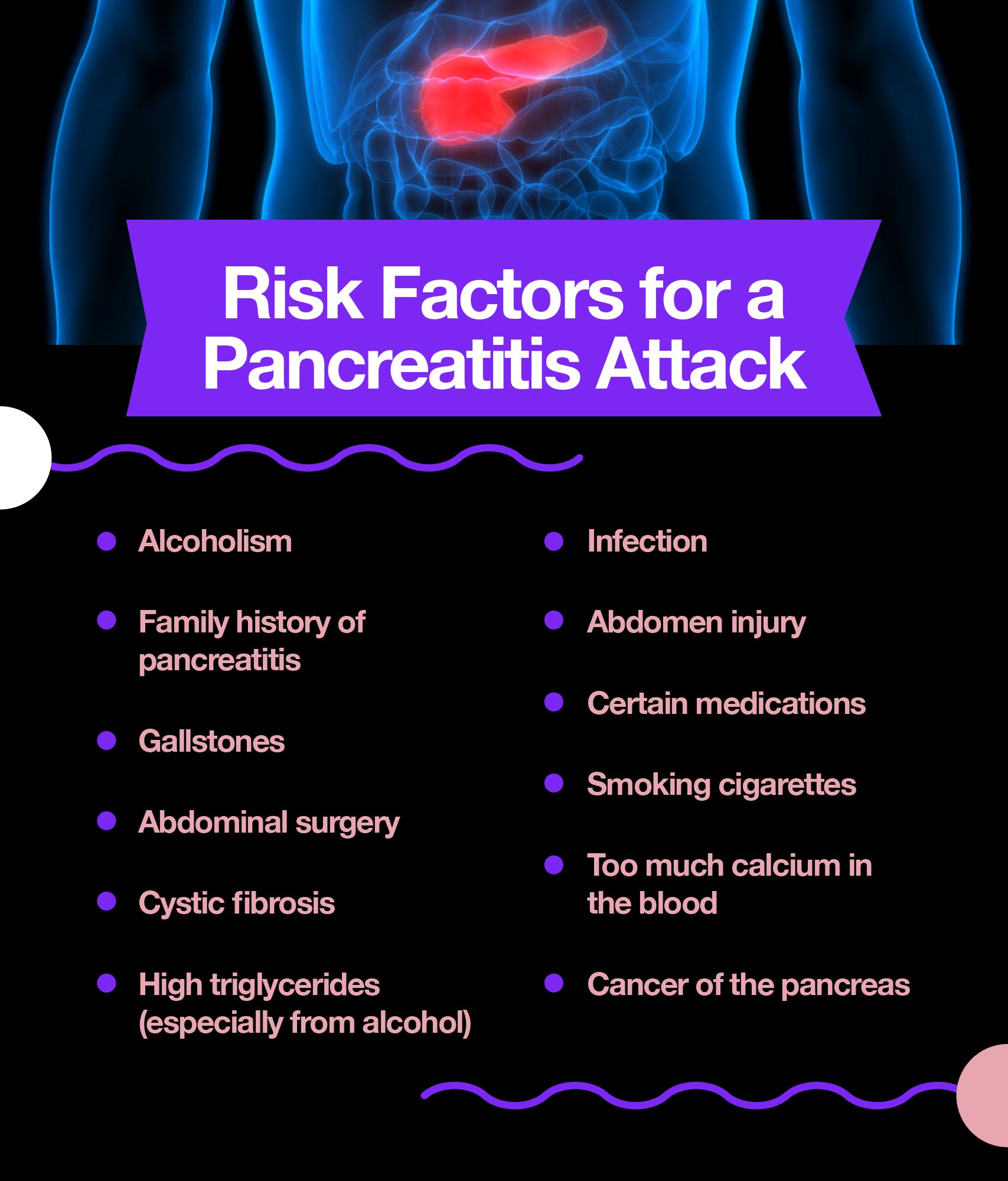
Pancreatitis Pain: Could You Have Pancreatitis? - The Amino Company
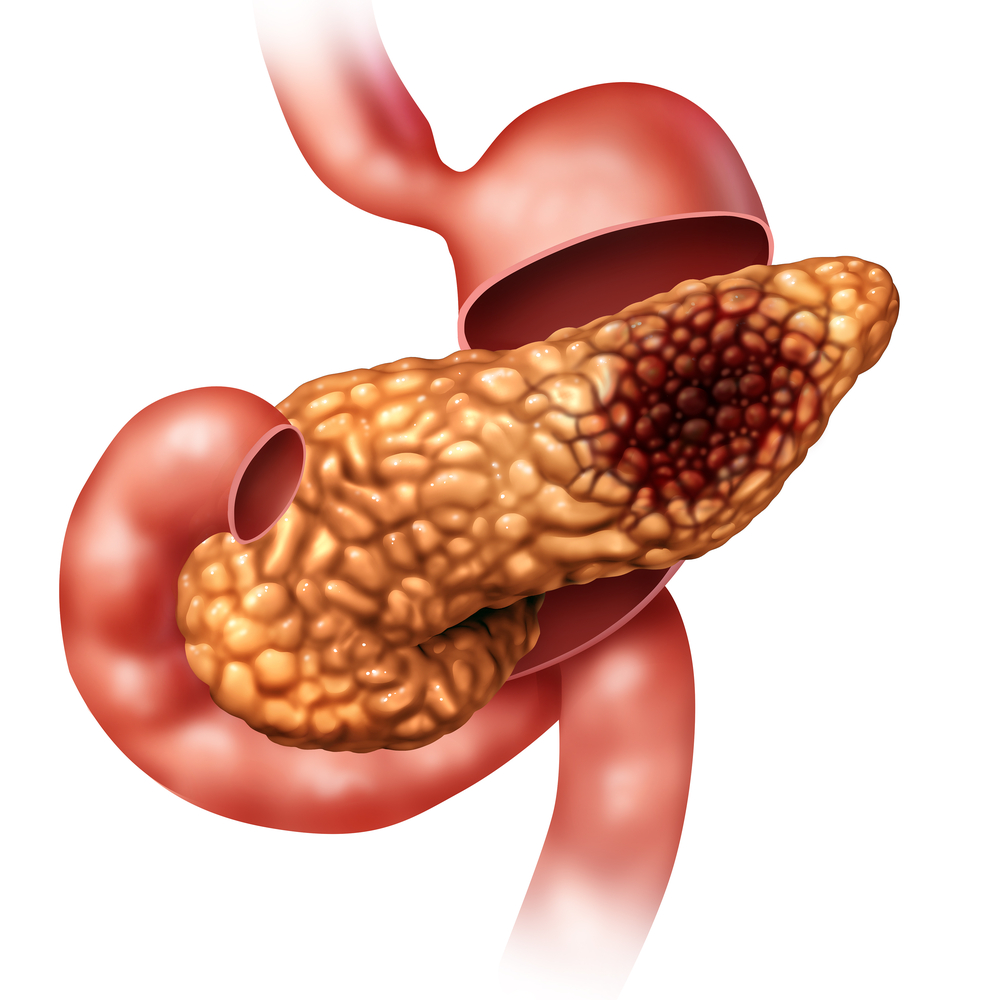
Doctors Discover Why Pancreatic Cancer Kills So Quickly | American Council on Science and Health

Pancreatic cancer: Symptoms, causes, and treatment
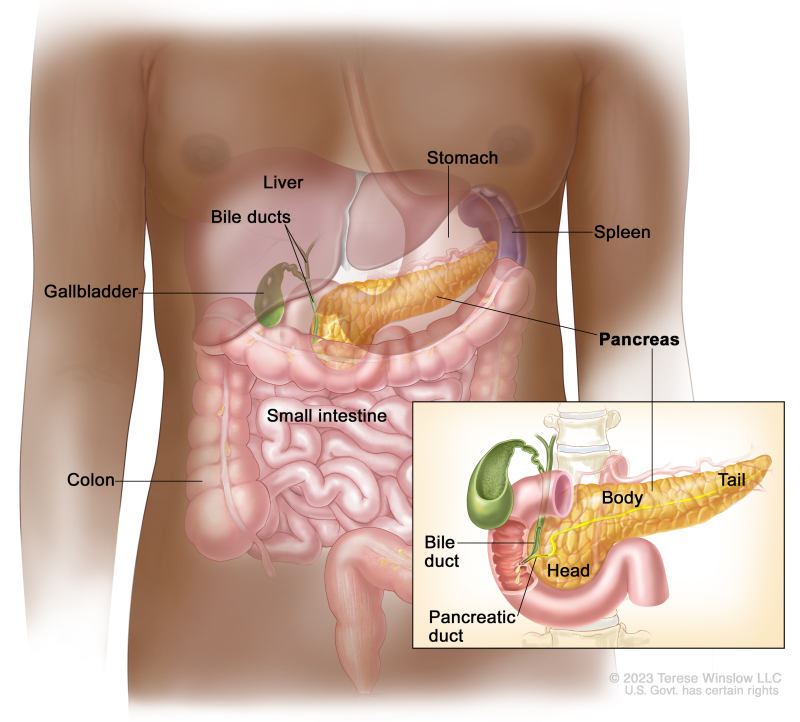
Pancreatic Cancer Treatment (Adult) (PDQ®) - PDQ Cancer Information Summaries - NCBI Bookshelf

Pancreatic Cancer: Causes, Symptoms, Prognosis, and Treatments
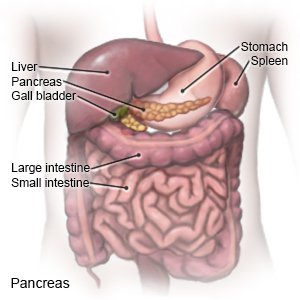
Pancreatic Cancer - What You Need to Know

Drug Use and the Pancreas | Signs & Symptoms of Drug Abuse

Pin on Things to live by

Everything Fun Will Kill You (Acute Pancreatitis) - County EM
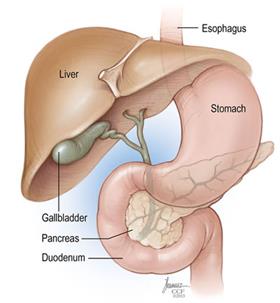
Pancreatic Cancer: Symptoms, Causes, Treatments
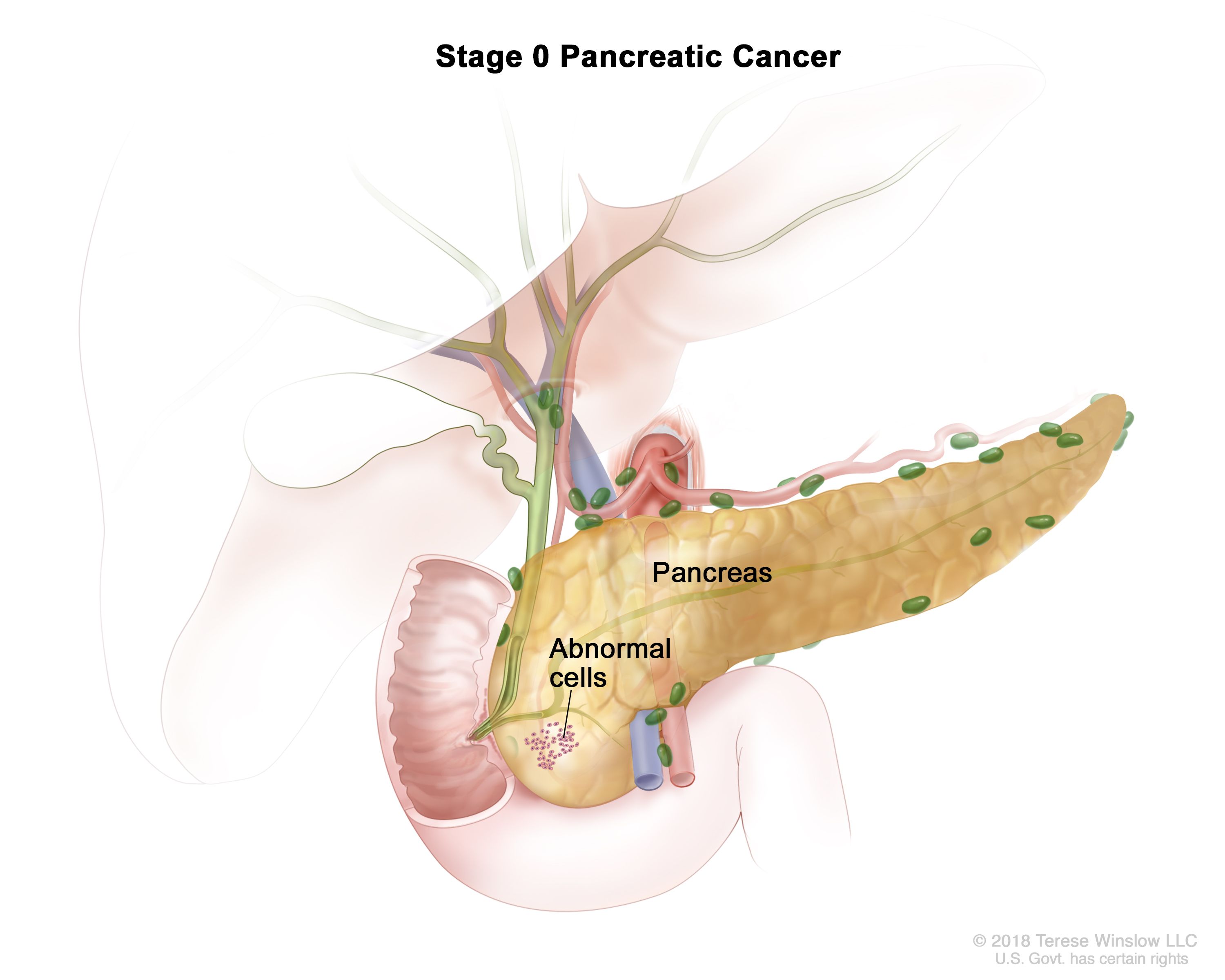
Department of Surgery - Pancreatic Cancer

Everything Fun Will Kill You (Acute Pancreatitis) - County EM
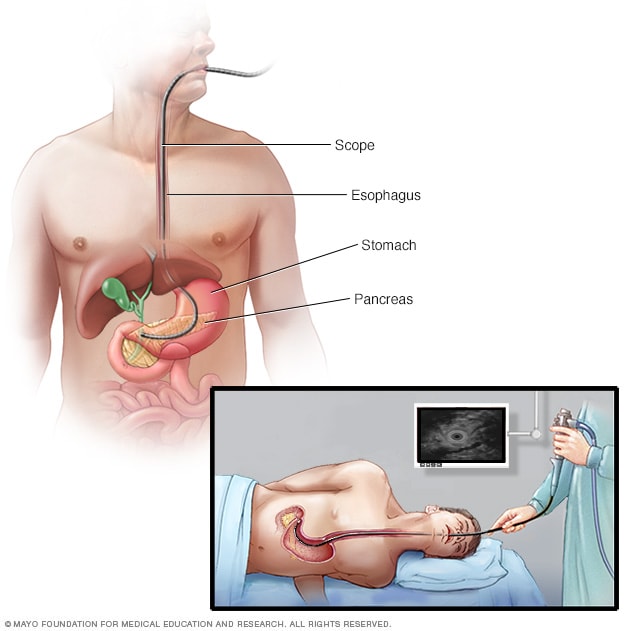
Pancreatic cancer - Diagnosis and treatment - Mayo Clinic

Pancreatic Cancer: How to Catch a Silent Killer - Science in the News

Medical marvel: Inducing this molecule in the body can kill pancreatic cancer cells by 90% - The Economic Times
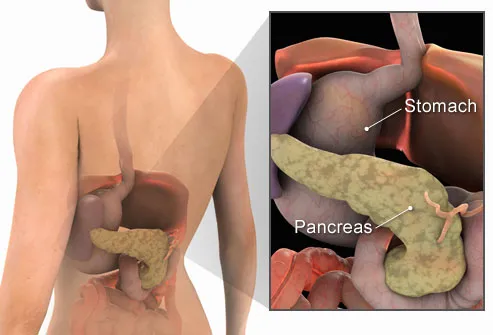
Stages of Pancreatic Cancer: Symptoms, Stages, and More
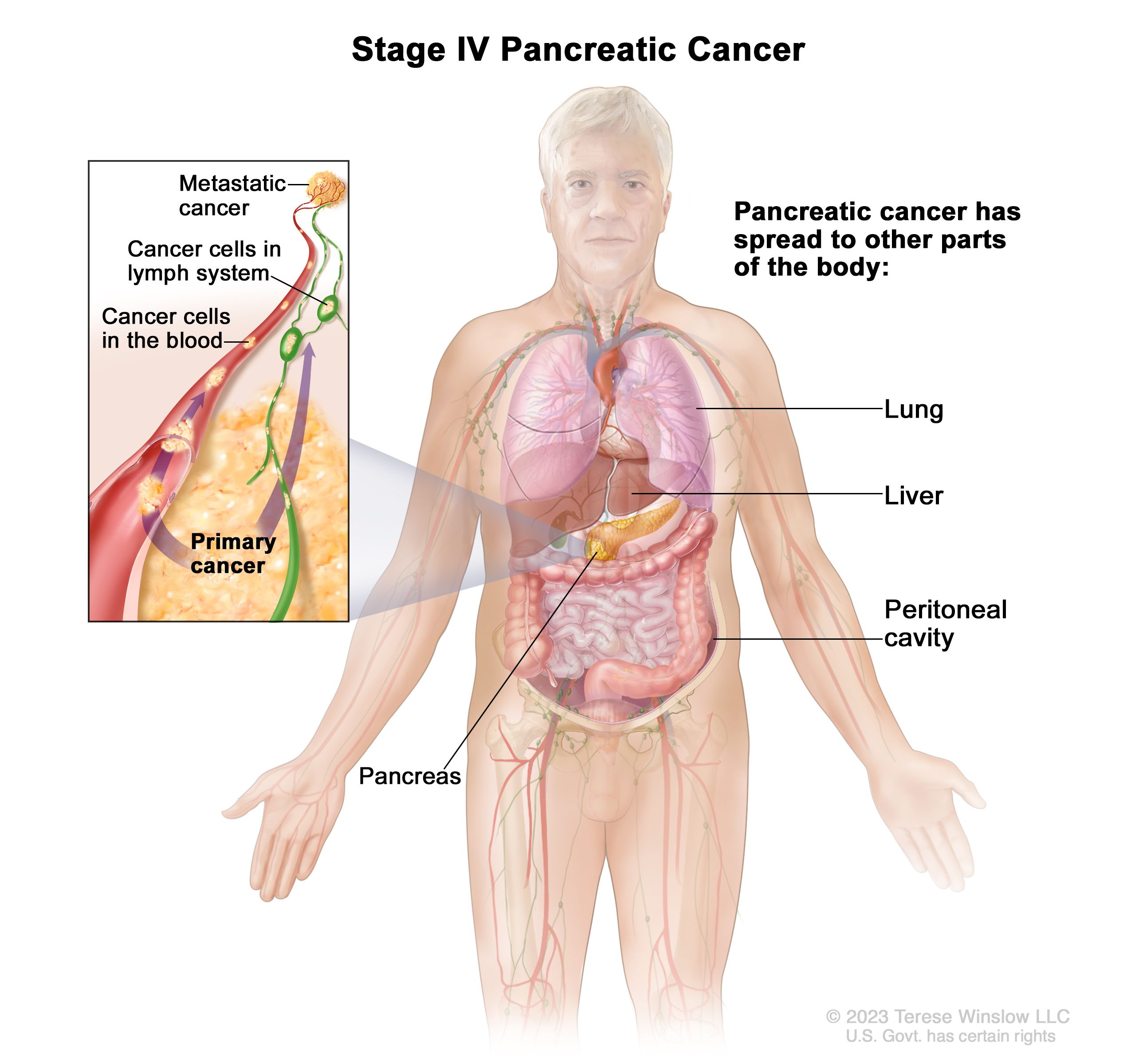
Department of Surgery - Pancreatic Cancer
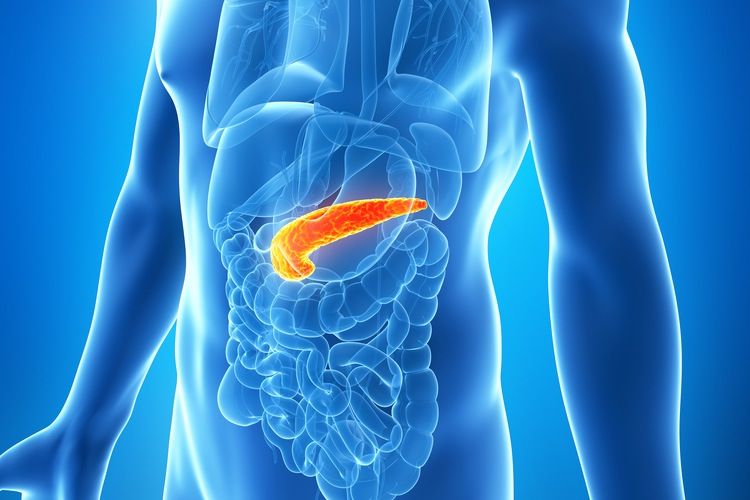
Pancreas: Function, Location & Diseases | Live Science

Whipple Procedure (Pancreaticoduodenectomy) - Pancreatic Cancer Action Network

Major Strides in Pancreatic Cancer Give 'Actual Reasons for Hope'

Pancreatitis - Physiopedia
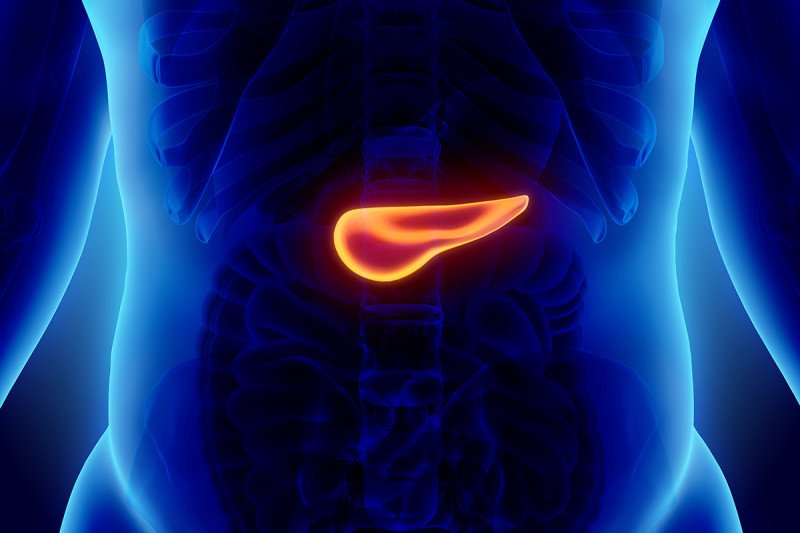
Why Do Some People Beat the Odds against Pancreatic Cancer? | Memorial Sloan Kettering Cancer Center
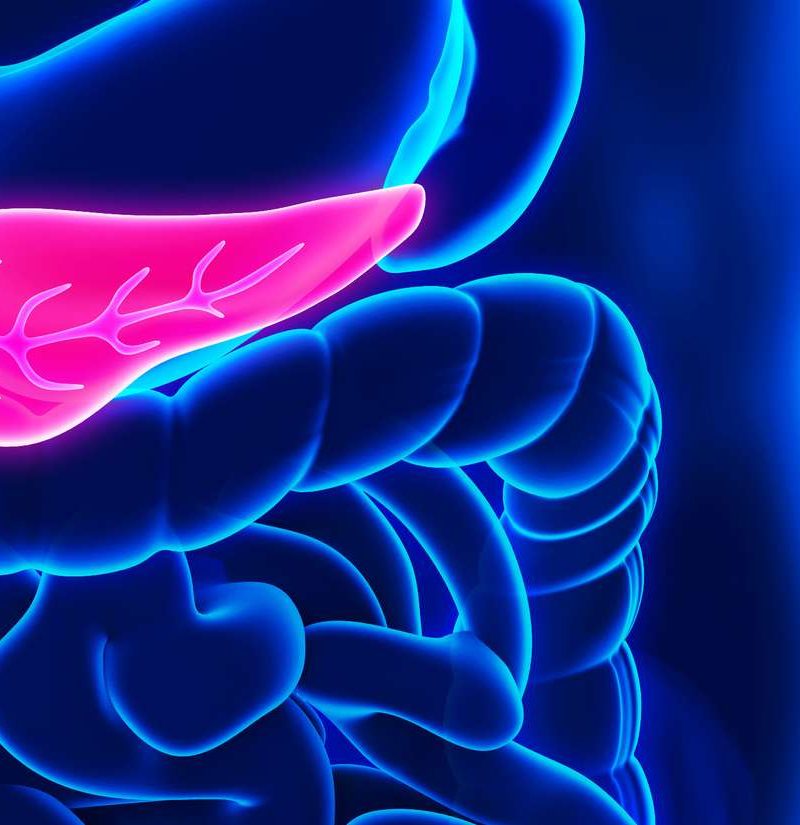
Pancreatic cancer: Symptoms, causes, and treatment

What makes pancreatic cancer so deadly? - Scientific American

Pancreatitis - Physiopedia
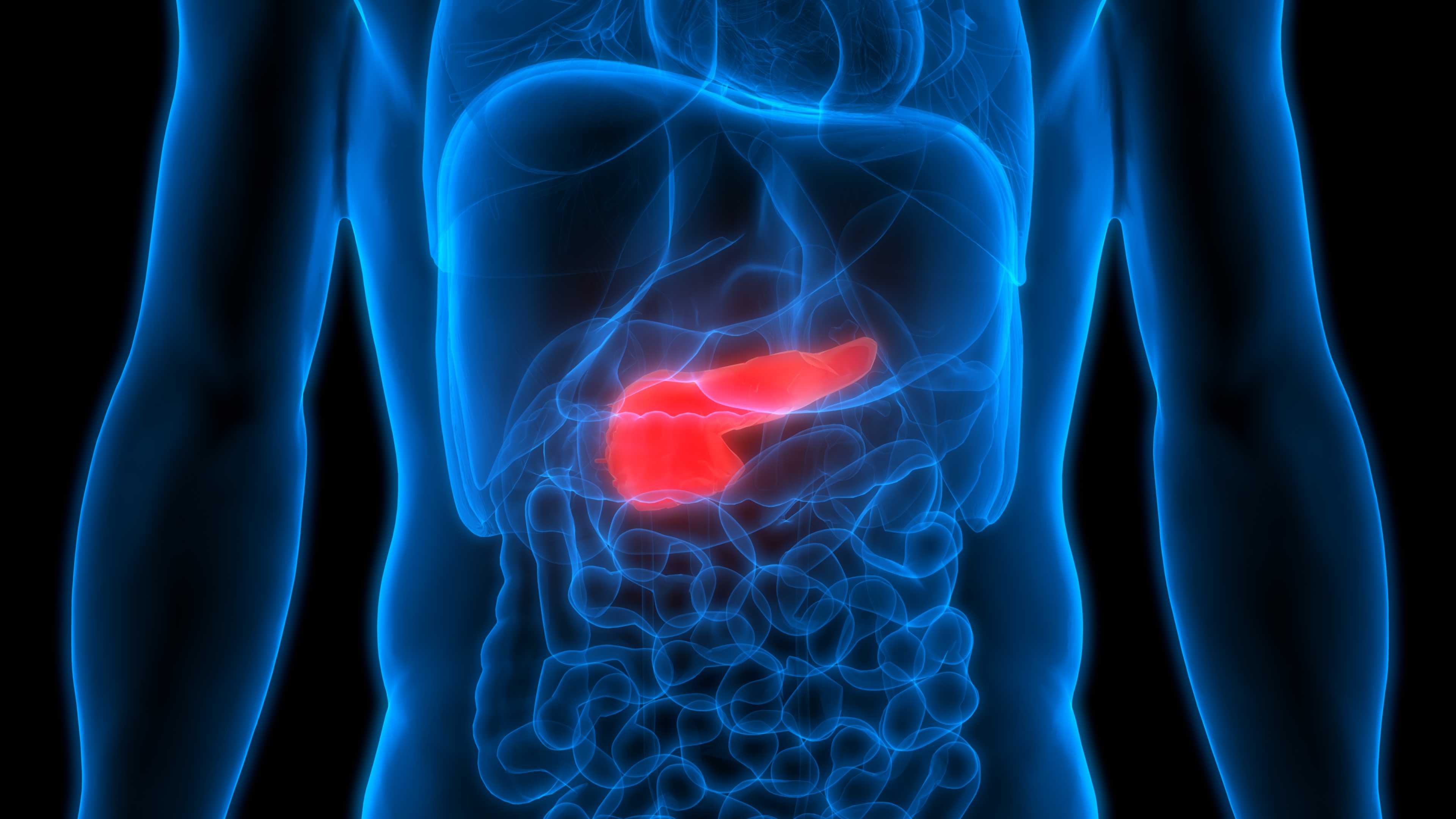
Pancreas and Diabetes - Role and Insulin

Pancreatic Cancer Treatment, Symptoms, Cause, Stages & Survival Rates
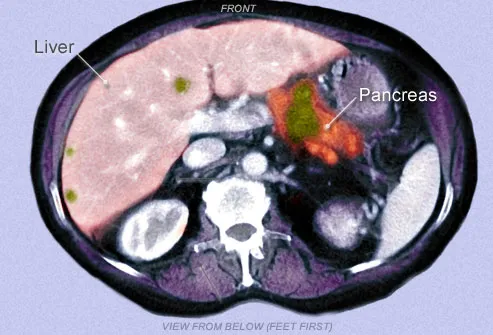
Stages of Pancreatic Cancer: Symptoms, Stages, and More

Pancreatitis | Gastroenterology
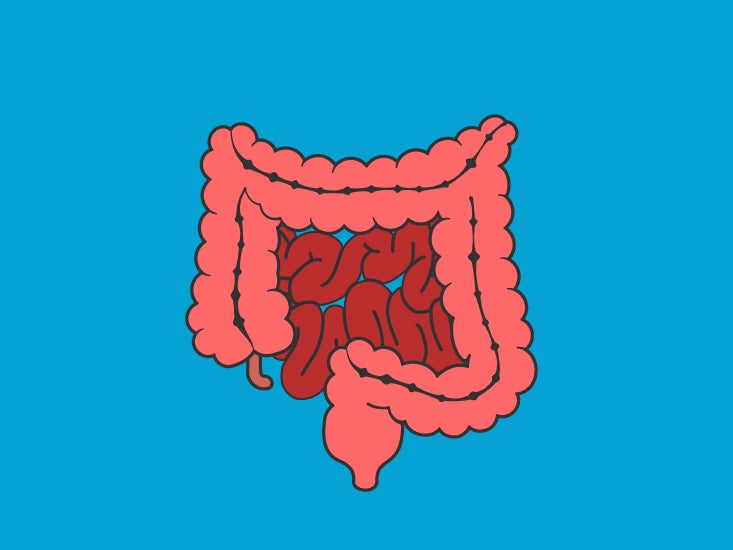
Necrotizing Pancreatitis: Symptoms, Treatment, and More
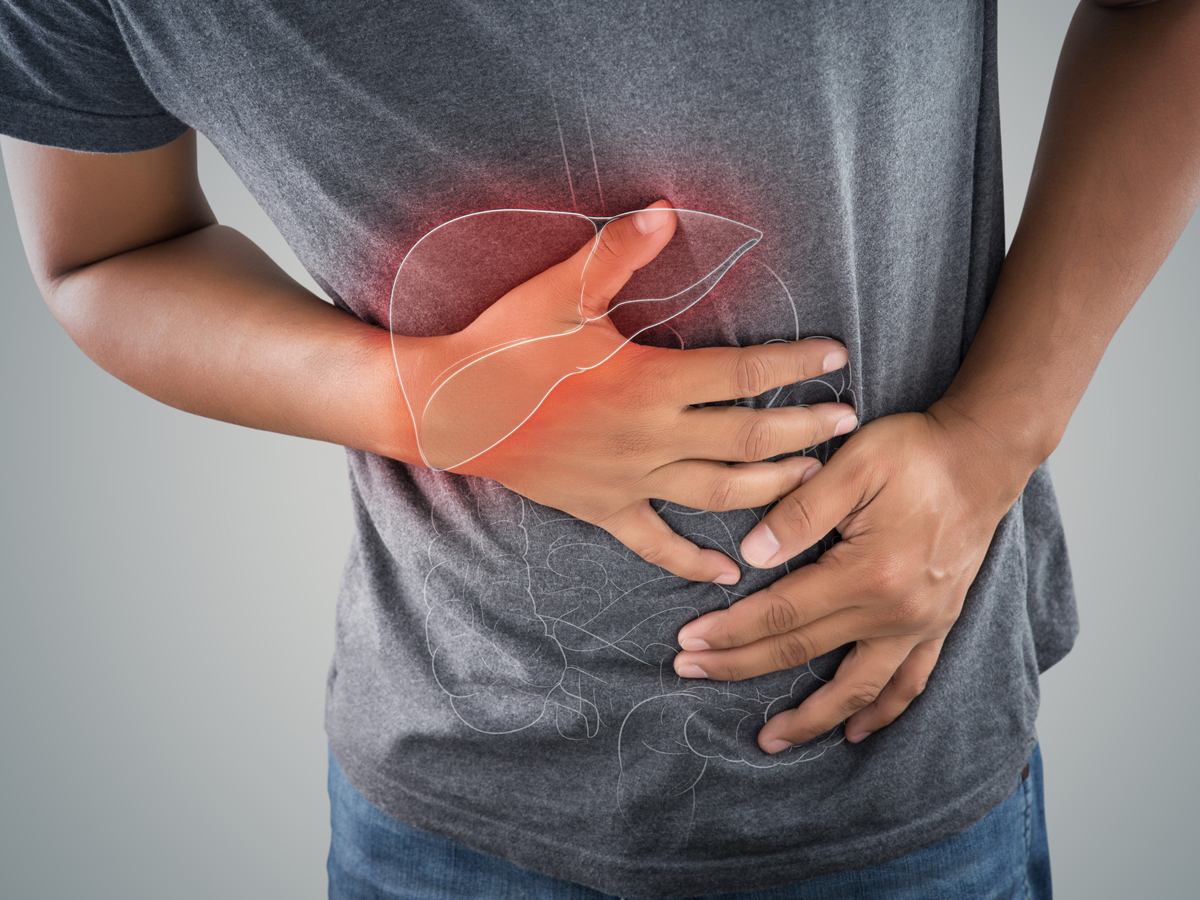
alcohol: Experiencing severe abdominal pain after an alcohol binge? Could be pancreatitis - The Economic Times

Stages of Pancreatic Cancer: Symptoms, Stages, and More

A Patient and Caregiver's Perspective - June and Rod's Story - The National Pancreas Foundation
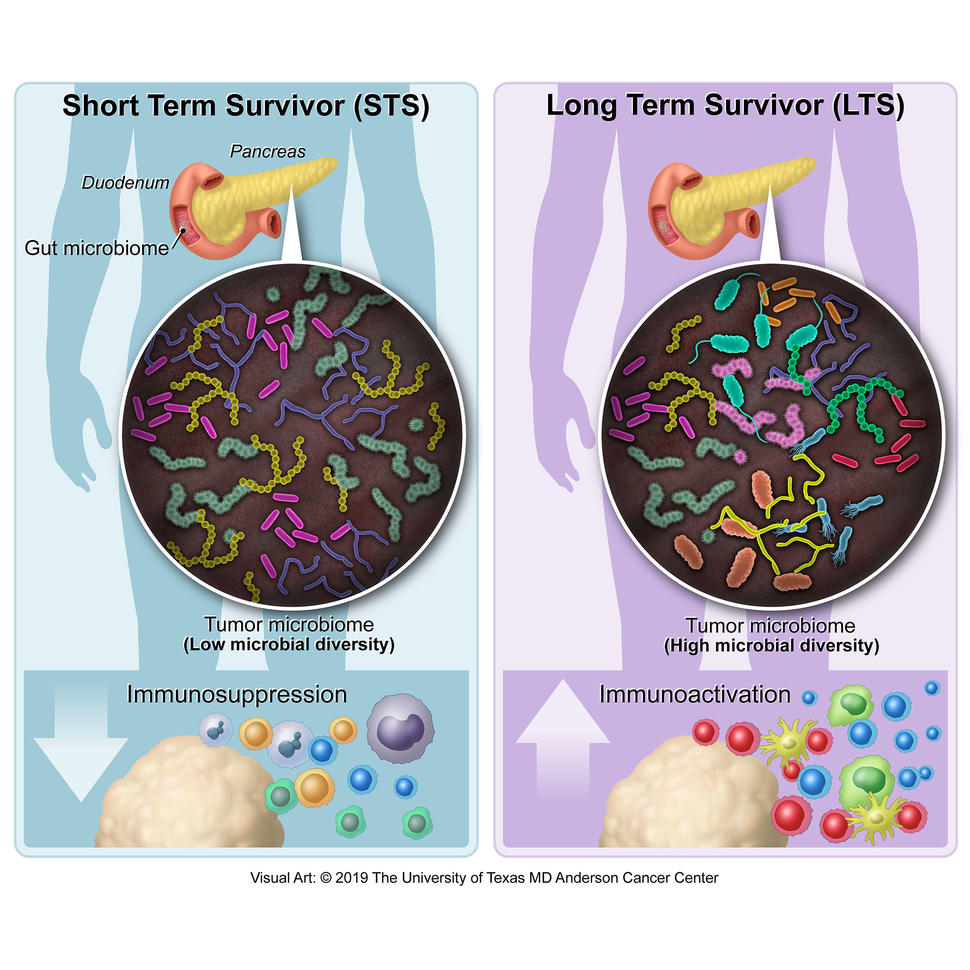
Treating Pancreatic Cancer by Altering the Tumor Microbiome - National Cancer Institute

120 Chronic Pancreatitis ideas in 2021 | pancreatitis diet, pancreas health, chronic
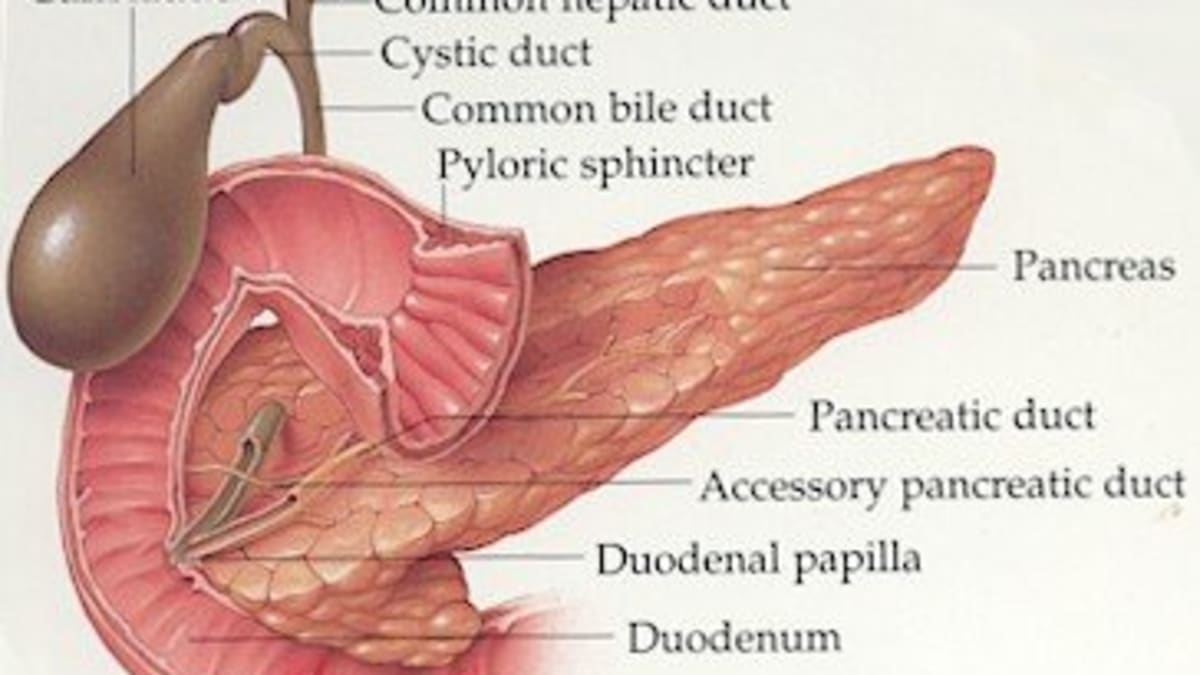
Pancreatitis and How it Can Ruin Your Life - HubPages
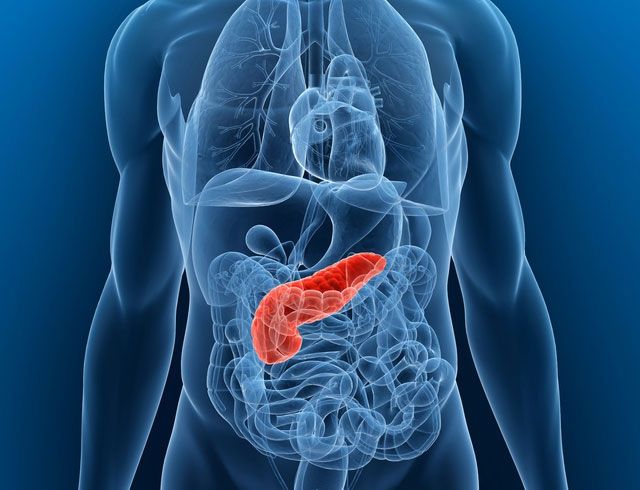
Pancreatic Cancer: Causes, Symptoms & Treatments | Live Science

DISSECT platform with multi-omics data and various analytic tools - CNGBdb

Pancreatitis Treatments & Medications | SingleCare

Classic Pancreatic Cancer FAQ – Pancreatica.org
Posting Komentar untuk "can pancreatitis kill you"